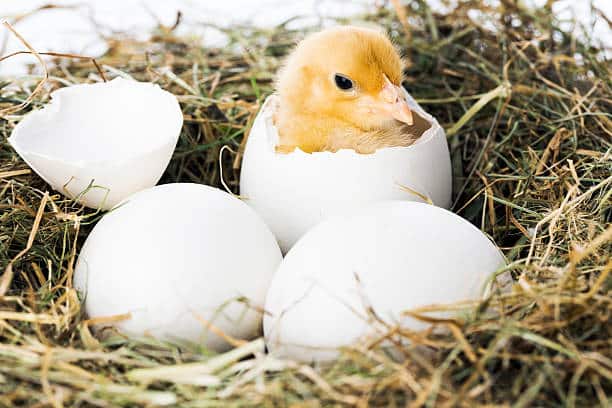If you’re venturing into the world of poultry farming or simply curious about the miracle of life, knowing how long it takes for a chicken egg to hatch is crucial. This editorial guide offers you detailed insights into the hatching process, factors that can affect it, and valuable tips to ensure a successful hatching experience. Armed with this knowledge, you’ll have all the tools you need to welcome new chicks into the world.
Table Of Contents
−The Standard Hatching Timeframe
The normal hatching duration for a chicken egg is approximately 21 days. While you could let Mother Nature take its course with a broody hen, using an incubator allows for more precise control over temperature and humidity. Generally speaking, if a broody hen isn’t available, it’s advisable to opt for an incubator to maximize success rates.

Comparing Hatching Times with Other Poultry
It’s interesting to note that other types of poultry eggs can have varying hatching times. Duck eggs, for instance, typically take around 28 days, while goose eggs stretch the timeline to a full 30 days. This underscores the importance of understanding species-specific requirements when branching into different types of poultry.
The Moment of Hatch: What Happens?
After an egg has incubated for several days, you’ll notice the first signs of life—a tiny crack or ‘pip’ on the shell. From this moment, it generally takes between 5 to 7 hours for a chick to fully emerge. The period might feel endless, but it’s a crucial time for the developing chick inside.
Understanding the Incubation Process
In incubating chicken eggs, 21 days is the average time needed. However, this is not a fixed rule; sometimes it can take up to 24 hours for a chick to break free entirely from its shell. Monitoring temperature and humidity levels meticulously during this period is essential for successful hatching. Post-hatching, the chicks will need immediate care to ensure their well-being.
The Biology Behind the Timeframe
Why does hatching take a full 21 days? One key reason is that the chick needs ample time to absorb the nutrients from the yolk sac. This yolk sac acts as the chick’s primary source of energy and sustenance while it develops within the protected shell.
Factors That Affect Hatching
Several variables can influence how long it takes for an egg to hatch. Incubator settings such as temperature and humidity are critical. Additionally, the breeder’s influence can’t be ignored; aspects like the chicken’s age, health, and even the quality of the egg itself can have a significant impact. Despite these factors, 21 days remain the general guideline for hatching chicken eggs.
Early Signs of a Successful Hatch
Around 72 hours into incubation, it’s often possible to ascertain whether an egg will hatch successfully. Visual indicators include the development of tail, wing, and leg buds, as well as a beating heart. By day 21, well-developed chicks should be visible, further confirming a likely successful hatch.
Tips for Speeding Up the Hatching Process
While we can’t significantly alter the timeline Mother Nature has set, certain best practices can facilitate a smooth hatching process:
- Increasing Humidity: On the 21st day, elevate the incubator’s humidity levels. A flexible outer membrane helps the chicks during hatching.
- Stopping Egg Rotation: By the 19th day, disengage any automatic egg-turning features in your incubator.
- Preparing the Brooder: Ensure your brooder is set up by day 19 or 20, with proper heating and bedding. This prepares the environment for the chicks once they emerge.
- Avoiding Unnecessary Intervention: The temptation to assist a struggling chick might be high, but it’s usually best to let nature take its course.
Conclusion
Embarking on the journey of hatching chicken eggs is both exciting and challenging. With an average hatch time of 21 days, preparation and close attention to detail are key. Variability does exist due to factors like incubator settings and the quality of eggs, but by adhering to best practices, you’re well on your way to poultry farming success.

Editorial Staff
Our writers, editors, content managers, and SEO specialist. We all take part in crafting amazing articles. We spend hours ensuring that each article is based on facts, researched, and thorough. You'll never want to click the back button to look for more answers other than here!
